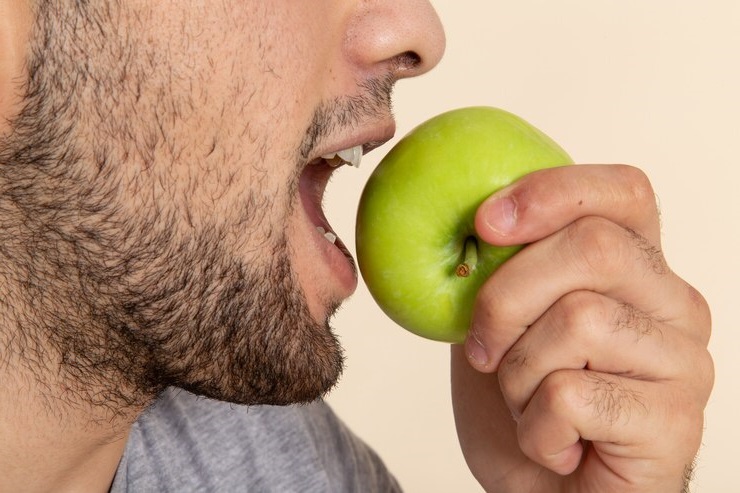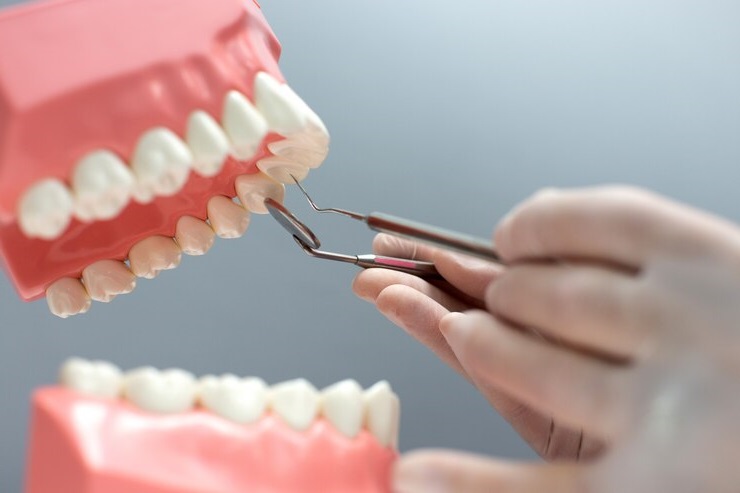
Have you ever heard about probiotics and wondered if they can really help with your dental health? There’s a lot of buzz around these beneficial bacteria and their potential to improve the health of your mouth. If you’re curious about whether probiotics for teeth and gums work, you’re in the right place. Let’s dive into the science and benefits behind probiotics and how they might just be the solution to keeping your mouth healthy.
Understanding Probiotics
First, let’s get a clear understanding of what probiotics are. Probiotics are live microorganisms, often referred to as “good” or “friendly” bacteria, that provide health benefits when consumed in adequate amounts. These beneficial bacteria are commonly found in fermented foods like yogurt, kefir, sauerkraut, and kimchi, as well as in dietary supplements. Probiotics help balance the natural bacteria in your body, contributing to overall health and well-being.
1. The Role of Probiotics in the Body
Probiotics play a crucial role in maintaining the health of your gut microbiome, which is the community of microorganisms living in your digestive tract. A balanced gut microbiome is essential for proper digestion, nutrient absorption, and immune function. But did you know that probiotics can also benefit your oral health?
2. How Probiotics Affect Oral Health
Just like your gut, your mouth has its own microbiome—a complex ecosystem of bacteria, fungi, and viruses. A healthy oral microbiome is vital for maintaining the health of your teeth and gums. When the balance of bacteria in your mouth is disrupted, harmful bacteria can take over, leading to dental problems like cavities, gum disease, and bad breath. Probiotics can help restore balance to your oral microbiome, promoting a healthier environment for your teeth and gums.
Benefits of Probiotics for Teeth and Gums
Now that we understand what probiotics are and how they can affect your oral health, let’s explore the specific benefits they offer for your teeth and gums. Here are some of the ways probiotics can help improve your dental health:
1. Reducing Plaque and Tartar
Plaque is a sticky film of bacteria that forms on your teeth and can harden into tartar if not removed. This can lead to tooth decay and gum disease. Certain strains of probiotics can help reduce the buildup of plaque by inhibiting the growth of harmful bacteria that contribute to plaque formation. By incorporating probiotics into your daily routine, you can help maintain a cleaner, healthier mouth.
2. Preventing Cavities
Cavities are caused by the acid produced by bacteria in your mouth, which erodes the enamel on your teeth. Probiotics can help prevent cavities by reducing the population of harmful bacteria that produce acid and promoting the growth of beneficial bacteria that protect your teeth. Regular use of probiotics can create an environment in your mouth that is less conducive to cavity formation.
3. Fighting Gum Disease
Gum disease, or periodontal disease, is an infection of the tissues that support your teeth. It’s often caused by a buildup of plaque and can lead to serious problems if left untreated. Probiotics can help fight gum disease by reducing inflammation and inhibiting the growth of harmful bacteria that cause infection. By using probiotics, you can support the health of your gums and reduce the risk of gum disease.
4. Freshening Breath
Bad breath, or halitosis, is often caused by an overgrowth of harmful bacteria in the mouth. Probiotics can help freshen your breath by balancing the bacteria in your mouth and reducing the presence of odor-causing bacteria. Incorporating probiotics into your oral care routine can help you maintain fresher breath throughout the day.
5. Supporting Overall Oral Health
In addition to these specific benefits, probiotics can support overall oral health by promoting a balanced oral microbiome. A healthy oral microbiome is essential for maintaining the health of your teeth and gums and preventing dental problems. By using probiotics, you can support the overall health of your mouth and enjoy a brighter, healthier smile.
How to Use Probiotics for Oral Health
If you’re interested in using probiotics to improve the health of your teeth and gums, there are several ways to incorporate them into your routine. Here are some tips on how to use probiotics for optimal oral health:
1. Probiotic-Rich Foods
One of the easiest ways to get probiotics is by consuming probiotic-rich foods. Foods like yogurt, kefir, sauerkraut, kimchi, and miso are all excellent sources of probiotics. Including these foods in your diet can help introduce beneficial bacteria to your oral microbiome. Aim to include a variety of these foods in your meals to get a diverse range of probiotics.
2. Probiotic Supplements
If you find it challenging to get enough probiotics from food alone, probiotic supplements are a convenient option. These supplements are available in various forms, including capsules, tablets, and powders. Look for supplements specifically formulated for oral health, as they contain strains of probiotics that are beneficial for your teeth and gums. Be sure to follow the dosage instructions on the packaging.
3. Probiotic Lozenges and Chewing Gum
Probiotic lozenges and chewing gum are designed to deliver beneficial bacteria directly to your mouth. These products dissolve slowly in your mouth, allowing the probiotics to colonize your oral tissues and provide targeted benefits. Using probiotic lozenges or gum can be an easy and effective way to support your oral health throughout the day.
4. Probiotic Toothpaste and Mouthwash
Some toothpaste and mouthwash products are formulated with probiotics to help improve your oral health. Using probiotic toothpaste or mouthwash can help introduce beneficial bacteria to your mouth and support a healthy oral microbiome. These products can be used as part of your regular oral care routine to provide additional benefits.
5. Consistency is Key
To get the most out of probiotics, it’s important to use them consistently. Incorporating probiotics into your daily routine can help maintain a balanced oral microbiome and support the health of your teeth and gums. Whether you choose to consume probiotic-rich foods, take supplements, or use probiotic oral care products, consistency is key to achieving the best results.
The Science Behind Probiotics for Oral Health
While the benefits of probiotics for gut health are well-documented, you might be wondering if there’s scientific evidence to support their use for oral health. Let’s explore some of the research behind probiotics and their impact on your teeth and gums.
1. Clinical Studies on Probiotics and Oral Health
Several clinical studies have investigated the effects of probiotics on oral health. These studies have shown that probiotics can help reduce plaque, prevent cavities, and improve gum health. For example, a study published in the Journal of Clinical Periodontology found that the use of probiotic lozenges containing Lactobacillus reuteri significantly reduced gingivitis and plaque in participants.
2. Mechanisms of Action
Probiotics work by several mechanisms to improve oral health. They compete with harmful bacteria for space and nutrients, produce substances that inhibit the growth of harmful bacteria, and modulate the immune response to reduce inflammation. By these mechanisms, probiotics can help create a healthier environment in your mouth and support the health of your teeth and gums.
3. Specific Strains of Probiotics for Oral Health
Not all probiotics are created equal, and certain strains are more beneficial for oral health than others. Some of the most commonly studied strains for oral health include Lactobacillus reuteri, Lactobacillus casei, and Bifidobacterium lactis. These strains have been shown to effectively reduce plaque, prevent cavities, and improve gum health.
Potential Side Effects and Considerations
While probiotics are generally considered safe for most people, it’s important to be aware of potential side effects and considerations when using them for oral health.
1. Digestive Issues
Some people may experience mild digestive issues, such as gas or bloating, when they first start taking probiotics. These symptoms usually resolve on their own as your body adjusts to the beneficial bacteria. If you experience persistent digestive issues, consider reducing your dosage or trying a different strain of probiotics.
2. Allergies
If you have a known allergy to any of the ingredients in probiotic supplements or foods, be sure to read labels carefully and consult with a healthcare professional before using them. While allergies to probiotics are rare, it’s always best to be cautious.
3. Interactions with Medications
If you are taking any medications, particularly antibiotics, consult with your healthcare provider before using probiotics. Antibiotics can reduce the effectiveness of probiotics by killing beneficial bacteria, so it’s important to time your probiotic use appropriately. Your healthcare provider can help you determine the best schedule for taking probiotics alongside your medications.
Personal Experiences and Testimonials
While scientific research provides valuable insights into the effectiveness of probiotics for oral health, personal experiences and testimonials can also offer useful perspectives. Many people have reported positive results from using probiotics for their teeth and gums.
1. Improved Oral Health
Some individuals have noticed significant improvements in their oral health after incorporating probiotics into their routine. This includes reduced plaque buildup, fewer cavities, and healthier gums. These positive experiences can help reinforce the potential benefits of probiotics for oral health.
2. Fresher Breath
Many people who use probiotics for oral health report fresher breath as one of the benefits. By balancing the bacteria in the mouth, probiotics can help reduce bad breath and promote a more pleasant oral environment. This can boost confidence and improve social interactions.
3. Enhanced Overall Health
Because oral health is closely linked to overall health, improving the health of your teeth and gums with probiotics can also have positive effects on your general well-being. A healthy mouth can reduce the risk of systemic infections and contribute to better overall health. People often notice an improvement in their overall quality of life when they prioritize oral health.
Conclusion
So, do probiotics for teeth and gums work? The evidence suggests that they do. By incorporating probiotics into your daily routine, whether through foods, supplements, or oral care products, you can support a healthier oral microbiome and improve the health of your teeth and gums. Remember to choose products that contain specific strains of probiotics known to benefit oral health and to use them consistently for the best results. With these tips, you can enjoy a brighter, healthier smile and better overall health.





